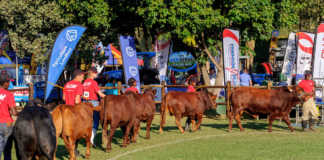Addressing South Africa’s drought and water shortage crisis, Van Rooyen said that the drought had been caused by below average rainfall and increased maximum temperatures.
“These conditions have resulted in eight provinces being declared states of disaster, with the exception being Gauteng,” he said.
Tsakani Baloyi, spokesperson for COGTA, told Farmer’s Weekly that the disaster areas were declared "a long time ago".
Responding to media reports that Van Rooyen made further declarations about drought disaster zones, Baloyi said he did not "make any announcements, it was just a meeting".
Speaking to Farmer’s Weekly, Agri SA CEO, Omri Van Zyl, said that Agri SA had been telling government for months that the drought was a national disaster, and added that he was specifically critical of Van Rooyen’s comment that “our people do not have enough information [about the drought]”.
“It is time the government came to the table. We all pay taxes but haven’t received a cent from the state. I don’t understand the rationale behind only declaring it now. The facts speak for themselves,” Van Zyl said.
“Agri SA has a drought task team that provided government with an extensive report six months ago. The situation is worsening and government isn’t taking responsibility.”
In response to minister of rural development, Gugile Nkwinti’s, recent comment that South Africa did not have enough dams to store water, Van Zyl said that food production needed to be prioritised.
“How many dams have been built in the past couple of years? One has to decide what infrastructure is priority and roll it out. You cannot simply do patchwork on existing infrastructure.”
Hennie Viljoen, who runs a Simmentaler stud and commercial herd near Parys in the Free State, said that some farmers had recently requested to buy bales from him, “I couldn’t assist [as] I don’t know what the situation will be in three months,” he said.
He added that he had not received any drought assistance, and that many farmers in the area had culled their herds, “I heard that smallholders farming near the town each received three bags of feed from government. You can keep two cows alive for two weeks with that amount of feed.
There’s great need. I will have to cull some animals from my herd and have planned an auction for August. I don’t know what market prices will do at that stage. But I have to do it,” Viljoen said.











